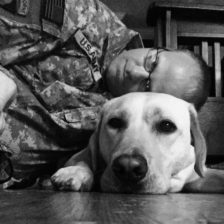During a conversation with my students, the question, “what’s on your reading list?” came up in class. One of my favorite questions, I will admit…but, in all honesty, some students could care less about what I read. However, I thought some of you may be interested in a few books that I’ve read, or have on my reading list.
For about three years most of my reading was for school and research, reading at times that was not “fun,” or “lighthearted.” I found a lot of my work very interesting, and some of the reading has helped me understand Veterans, trauma, PTSD, TBI, and war. At times some of the information was mind boggling, other times it was intense, and most of the time, when reading super academic articles or texts, I needed to look up words and re-read what I had just read.
So, I’ll share four books with you in this post. These may not be books for everyone, and I understand that…but these might be books that interest you, or help you understand a little more about the Veteran experience.
- Phil Klay, Redeployment. This is a National Book Award winner, and one of the books I used for my thesis. Klay, a Veteran, writes short stories based on time spent in Iraq. Some people call Klay “the next Tim O’Brien,” but I feel that their writing is different. This book helped me understand various experiences of those who may have been deployed to Iraq. When Klay returned home, he felt as if he needed to answer people when they asked him about his “time over there,” and his “war experiences.” This book was four years in the making and offers various perspectives on the war from the point of twelve different stories (and narrators). All of the stories include a variety of soldiers with various rank and experience.
- Helen Thorpe, Soldier Girls: The Battles of Three Women at Home and at War. For the vast majority of women, serving in the armed forces is tough. The Veteran voice is so important, and the female narrative is one which needs to be heard, or in this case, read. Thorpe is a journalist who follows three women and their ups and downs during multiple tours and civilian life. The book explores relationships, and the sacrifices these women made during their training and deployments. This also explores how men and women train together, work together, and try to navigate deployments together in what some consider a male dominated workforce.
- E. Anthony Seahorn and Janet J. Seahorn, Tears of a Warrior: A Family Story of Combat and Living with PTSD. Husband and wife, Anthony and Janet, share their story of what was meant to be a legacy for their sons…this a thirty-year journey about PTSD and how Tony went through deployments in the army as a young man in Vietnam. Janet writes as the wife and mother who did not know much about her husband’s time in combat. Their book is a message of hope, and a look at trauma (and healing). Also, Tony has a service dog!
- Stanley Hall, Deployed: The Survival Guide for Families at War. I read this book for a course (for my certificate in Veterans Studies) and found that Hall’s (a counselor) insight can prove to be helpful to those who are going through boot camp, moves, deployments, and after combat stress. This provides information and possibly answers for families who have questions or struggles during their time in the military—because, at times, the deployment doesn’t just affect the soldier–it can also take a toll on the family. Hall has worked with Marines, sailors, and their families. Something that is interesting is that Hall covers all the bases—PTSD, TBI, marriage, danger in deployments, trauma, stress for family members left behind—it really is an insight into what loved ones can face during time away from their service member.
So, there you have it….four books (out of MANY) that were helpful to me during the last three years. While I have a lot more that I could possibly share with you, these four were some of the ones that I would often refer back to for reference, for further explanation, or just for a “good read.”
What books do you enjoy, or recommend that tell us about the Veteran experience or the struggles of combat? I’d love to know—and possibly add more to my list! If you have any suggestions, please leave a comment or send me an email with your book recommendation at cahoekstra1@gmail.com
My best,
Cathrine

“To Cathrine, Thank you for all you do for Veterans. Best, Phil Klay.”
I met Phil Klay when he came to the Carbondale Public Library…and said a quick hello. He signed my copy of his book, and when he asked what I did, I told him I was a graduate student at SIU and I taught composition for student-veterans on our campus. Little did I know, but his work would become a major part of my research and thesis in understanding the trauma narrative.
